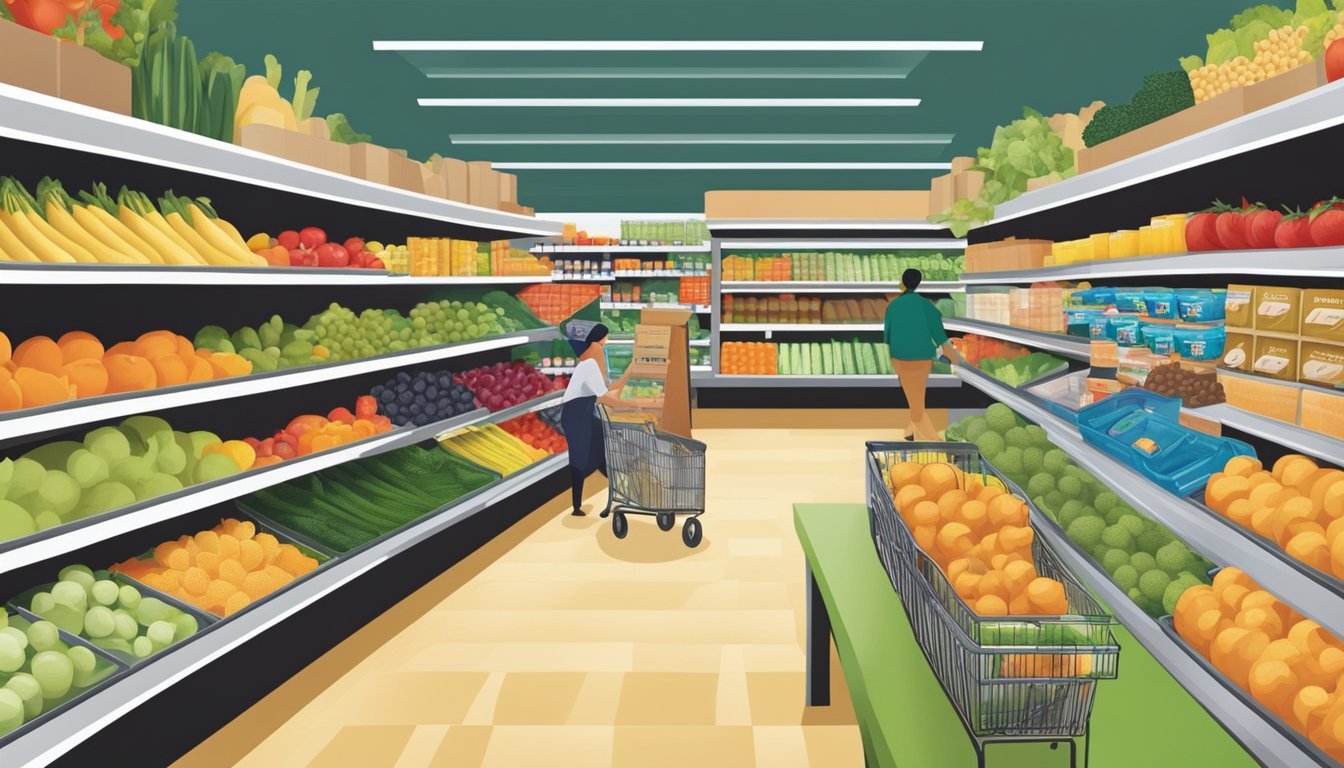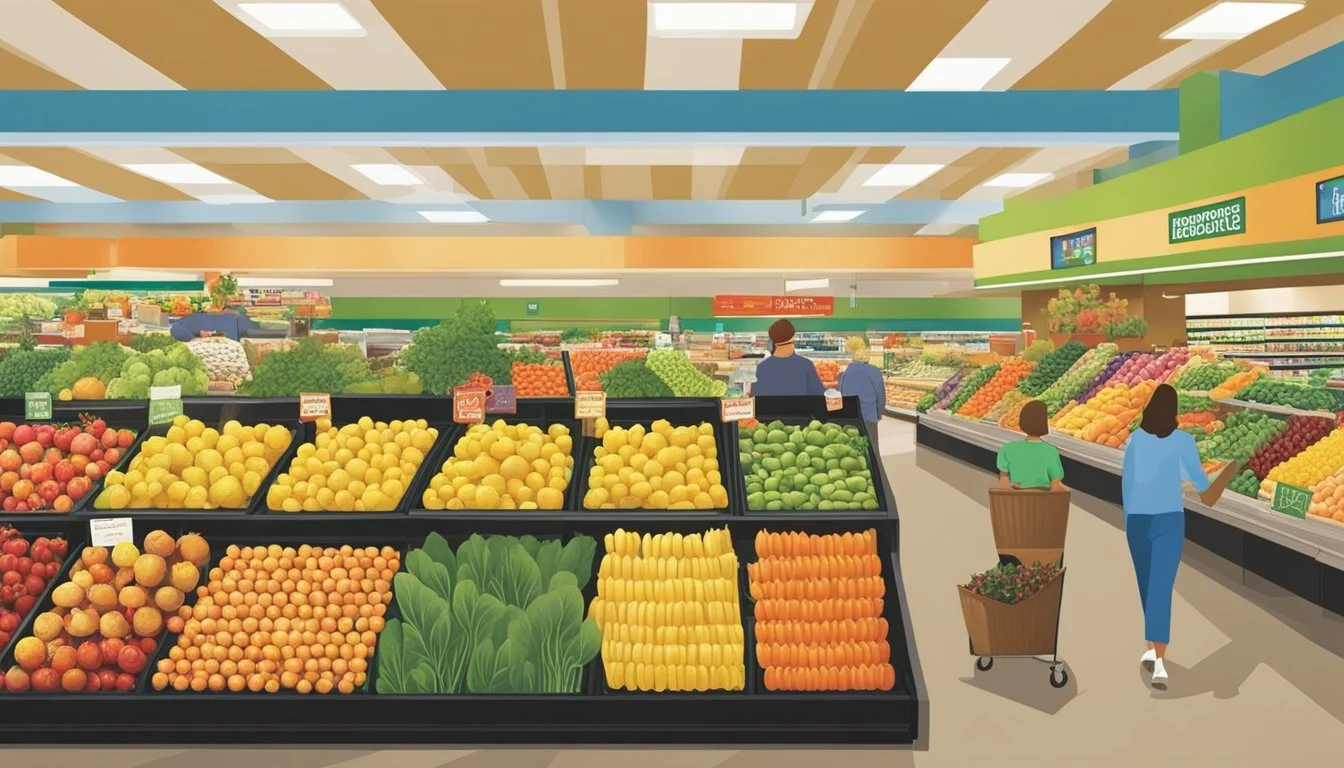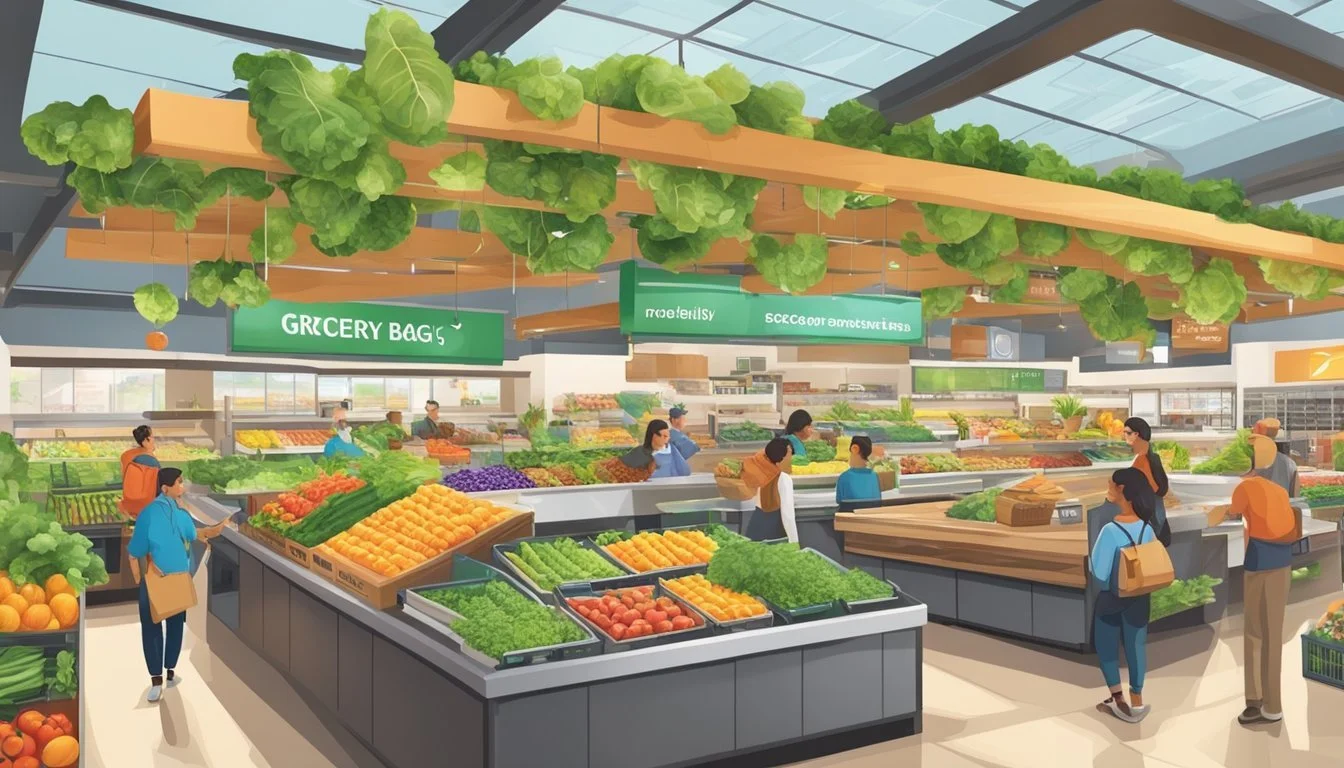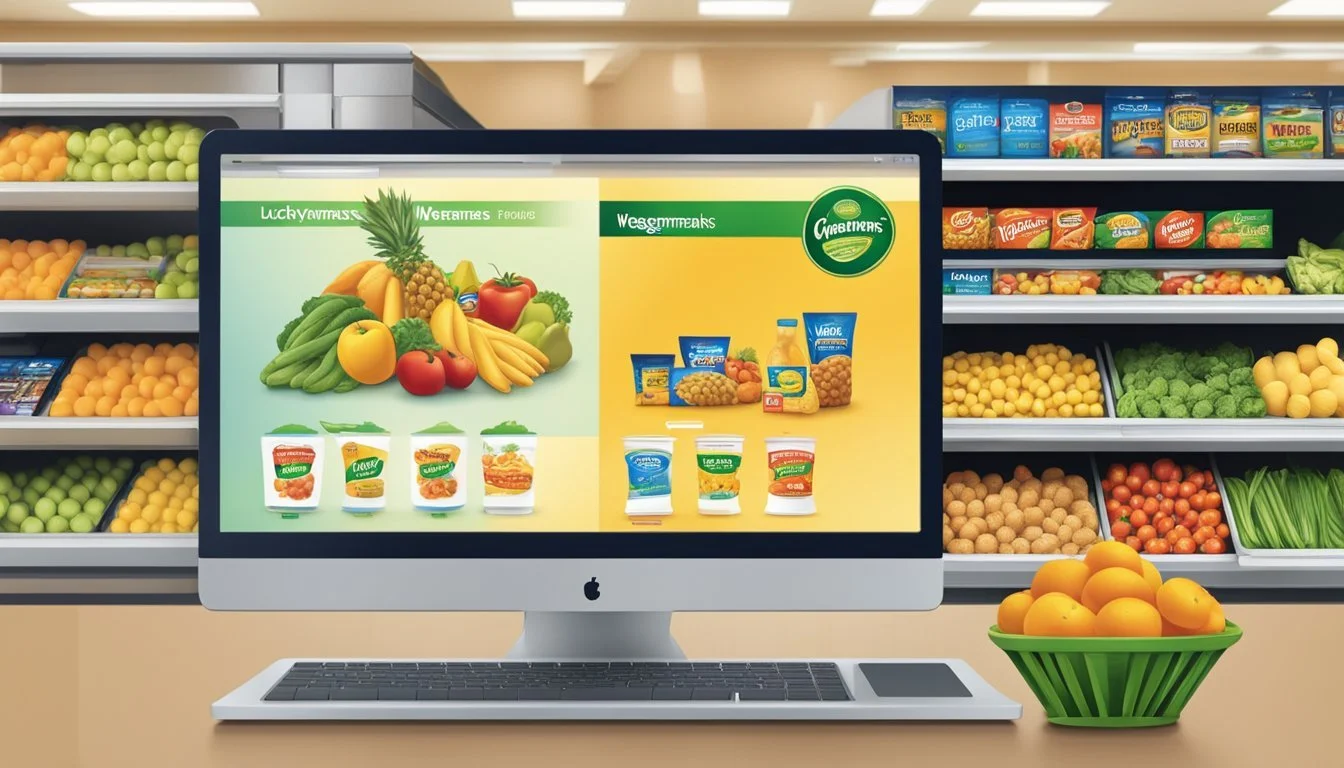Lucky Supermarkets vs Wegmans
Comparing Quality, Prices, and Selection
When it comes to choosing a grocery store, Lucky Supermarkets and Wegmans offer distinct shopping experiences. Lucky Supermarkets, primarily located in Northern California, focuses on affordable prices and a no-frills approach. Wegmans, with stores across the northeastern United States, is known for its extensive selection and high-quality offerings.
Wegmans generally provides a superior shopping experience compared to Lucky Supermarkets, with a wider range of products, better customer service, and a more pleasant store environment. Wegmans consistently ranks among the top supermarkets in consumer surveys, earning praise for its fresh produce, prepared foods, and private label items. The chain also invests heavily in employee training, resulting in knowledgeable and helpful staff.
Lucky Supermarkets may appeal to budget-conscious shoppers seeking basic groceries at competitive prices. However, the stores typically offer a more limited selection and less emphasis on specialty or gourmet items. For those prioritizing value and convenience over variety and ambiance, Lucky Supermarkets could be a suitable choice.
Company Backgrounds
Wegmans and Lucky Supermarkets have distinct histories that shaped their growth into prominent grocery chains. Both companies have deep roots in their respective regions and have evolved to meet changing consumer needs over the decades.
History of Wegmans
Wegmans began as a small produce push cart in Rochester, New York in 1916. Brothers Walter and John Wegman founded the company, which grew into a local grocery store by 1930. The family-owned business expanded steadily throughout the 20th century, focusing on innovation and customer service.
Wegmans pioneered concepts like in-store cafes and cooking classes in the 1970s. The chain expanded beyond New York in the 1990s, opening stores in neighboring states. Today, Wegmans operates over 100 stores across the Northeast and Mid-Atlantic regions.
The company is known for its extensive product selection, prepared foods, and employee-centric culture. Wegmans consistently ranks as one of the best companies to work for in the United States.
History of Lucky Supermarkets
Lucky Supermarkets traces its origins to 1935 when Charles Crouch opened the first store in San Leandro, California. The chain grew rapidly in the post-World War II era, becoming a major player in the California grocery market.
In 1988, American Stores Company acquired Lucky Supermarkets. The chain changed hands again in 1999 when Albertsons bought American Stores. Albertsons initially rebranded Lucky stores but later revived the Lucky name in 2006 for some locations.
Today, Lucky Supermarkets operates primarily in Northern California. The chain focuses on providing affordable groceries and serving diverse communities. Lucky stores often feature international food sections catering to local demographics.
Store Offerings Comparison
Lucky Supermarkets and Wegmans both provide diverse product selections, but differ in key areas. Wegmans stands out for its extensive prepared foods, while Lucky focuses more on budget-friendly options.
Variety of Products
Wegmans offers a wider range of products compared to Lucky Supermarkets. The store carries over 70,000 items, including many international and gourmet options. Lucky Supermarkets provides a more modest selection, focusing on everyday essentials and local favorites.
Wegmans excels in specialty departments like cheese, with hundreds of varieties available. Their seafood section is also noteworthy, featuring both fresh and frozen options from sustainable sources.
Lucky Supermarkets maintains a solid variety of national brands alongside their store brand products. Their produce section emphasizes locally-sourced fruits and vegetables when possible.
Quality of Products
Wegmans is known for its high-quality offerings across departments. Their meat section features prime cuts and grass-fed options. The store's bakery produces fresh bread, pastries, and cakes daily.
Lucky Supermarkets provides reliable quality at lower price points. Their meat department offers standard cuts at competitive prices. The store's produce, while perhaps not as extensive as Wegmans, is fresh and well-maintained.
Both stores maintain strict quality control standards for their dairy products and eggs. Wegmans, however, tends to stock a broader range of specialty dairy items.
Organic Options
Wegmans has a strong focus on organic products, with dedicated sections in produce, dairy, and pantry items. They offer their own line of organic products under the Wegmans Organic brand.
Lucky Supermarkets provides organic options, but the selection is more limited. They typically stock organic versions of popular produce items and some packaged goods.
Both stores label organic products clearly, making it easy for customers to identify these options. Wegmans tends to have more variety in organic meats and specialty items.
Prepared Foods and Deli Selection
Wegmans excels in this category with an extensive prepared foods section. Their stores feature in-house restaurants, sushi bars, and pizza stations. The deli offers a wide range of sliced meats, cheeses, and prepared salads.
Lucky Supermarkets has a more modest prepared foods section. They typically offer rotisserie chickens, pre-made sandwiches, and a small selection of hot foods. Their deli provides standard sliced meats and cheeses.
Wegmans' prepared foods often include healthier options and accommodate various dietary restrictions. Lucky focuses on convenient, family-friendly meals at budget-friendly prices.
Emphasis on Freshness and Quality
Lucky Supermarkets and Wegmans both prioritize freshness and quality in their offerings. Their approaches to produce, meats, and baked goods reflect their commitment to providing customers with superior products.
Produce Freshness
Lucky Supermarkets maintains a solid selection of fresh fruits and vegetables. They source from local farms when possible, ensuring shorter transit times from field to store.
Wegmans, however, takes produce freshness to another level. Their stores feature expansive produce departments with a wide variety of organic and conventional options. Wegmans employs dedicated produce teams to carefully inspect and rotate stock throughout the day.
Both chains offer pre-cut fruit and vegetable options for customer convenience. Wegmans edges out Lucky in terms of organic produce variety, often featuring hard-to-find specialty items.
Meat Quality
Lucky Supermarkets provides a standard range of meat options, including beef, pork, and poultry. They focus on offering competitive prices while maintaining acceptable quality standards.
Wegmans excels in meat quality and selection. Their butcher counters are staffed by knowledgeable professionals who can provide custom cuts and cooking advice. Wegmans offers a wider range of premium meats, including:
Dry-aged beef
Organic and free-range poultry
Sustainably sourced seafood
House-made sausages
Wegmans also emphasizes transparency in meat sourcing, providing detailed information about animal welfare practices and antibiotic use.
Bakery and Baked Goods
Lucky Supermarkets typically features an in-store bakery with a selection of breads, cakes, and pastries. Their offerings cater to everyday needs and special occasions.
Wegmans takes pride in its extensive bakery department. They produce a wide array of artisanal breads, European-style pastries, and custom cakes. Wegmans bakers use high-quality ingredients and traditional techniques to create superior products.
Unique to Wegmans are their:
Stone-hearth baked breads
Freshly made bagels and donuts
Gluten-free and vegan options
Specialty desserts like French macarons and gourmet cupcakes
Wegmans also offers in-store cake decorating services for personalized special occasion cakes.
Pricing Strategies
Lucky Supermarkets and Wegmans employ distinct pricing strategies to attract and retain customers. Their approaches to everyday pricing, discounts, and loyalty programs shape the shopping experience and overall value proposition for consumers.
Everyday Prices Comparison
Lucky Supermarkets positions itself as a budget-friendly option, offering competitive prices on staple items. Their strategy focuses on keeping costs low for essential groceries and household goods.
Wegmans, while not typically considered a discount retailer, maintains competitive pricing on many products. They balance higher-end offerings with reasonably priced basics.
A comparison of common items reveals:
Milk: Lucky $3.49/gallon, Wegmans $3.29/gallon
Bread: Lucky $2.99/loaf, Wegmans $2.79/loaf
Eggs: Lucky $3.99/dozen, Wegmans $3.89/dozen
Wegmans often edges out Lucky on everyday prices for these staples, but the difference is minimal.
Discounts and Savings Programs
Both stores offer weekly specials and promotional discounts to help customers save money. Lucky Supermarkets runs frequent "Buy One, Get One Free" deals on select items.
Wegmans utilizes a mix of temporary price reductions and multi-buy offers. Their "Family Pack" sizes provide savings for bulk purchases.
Digital coupons are available at both chains, accessible through their respective mobile apps. Lucky tends to offer more manufacturer coupons, while Wegmans focuses on store-brand discounts.
Seasonal sales events are common at both retailers, with Lucky emphasizing holiday-themed promotions and Wegmans showcasing locally sourced products at special prices.
Loyalty Programs
Lucky's rewards program offers points for every dollar spent, which can be redeemed for discounts on future purchases. Members receive personalized deals based on shopping history.
Wegmans' Shoppers Club provides instant discounts on select items throughout the store. No points are accumulated, but members gain access to exclusive offers and digital coupons.
Lucky's program includes fuel rewards, allowing customers to save on gas at participating stations. Wegmans does not offer a fuel rewards component.
Both loyalty programs are free to join and provide additional savings opportunities beyond everyday low prices and weekly specials.
Customer Shopping Experience
Lucky Supermarkets and Wegmans offer distinct customer experiences, each with its own strengths in store design, service quality, and checkout efficiency.
Store Layout and Design
Lucky Supermarkets typically feature a straightforward layout focused on functionality. Aisles are arranged logically, with clear signage guiding shoppers to different departments. The stores often have a no-frills approach, emphasizing practicality over aesthetics.
Wegmans, in contrast, is known for its expansive and carefully curated store designs. The chain creates a more upscale atmosphere with wider aisles, mood lighting, and artfully arranged product displays. Wegmans stores often include specialty departments like cheese shops and bakeries, giving them a market-like feel.
Both chains prioritize cleanliness, but Wegmans tends to receive higher marks for its overall ambiance and attention to detail in store presentation.
Customer Service
Lucky Supermarkets generally provides adequate customer service, with staff available to assist shoppers when needed. Employees are typically courteous and helpful, focusing on efficient interactions.
Wegmans has built a reputation for exceptional customer service. The chain invests heavily in employee training, resulting in knowledgeable staff who can offer product recommendations and answer detailed questions. Wegmans employees are often praised for their friendliness and willingness to go above and beyond for customers.
Both stores strive to maintain a positive shopping environment, but Wegmans consistently ranks higher in customer satisfaction surveys related to service quality.
Checkout Efficiency
Lucky Supermarkets aims for quick and efficient checkout processes. The stores usually have a mix of traditional cashier lanes and self-checkout options to accommodate different customer preferences. Wait times are generally reasonable, especially during off-peak hours.
Wegmans places a strong emphasis on smooth checkout experiences. The chain employs various strategies to minimize wait times, including express lanes for small purchases and mobile scanning options in some locations. Wegmans cashiers are trained to be fast and accurate, ensuring a speedy process.
Both stores have implemented technology to improve checkout efficiency, but Wegmans often edges out Lucky in terms of innovative solutions and overall customer satisfaction at the point of sale.
Market Position and Competitor Analysis
Lucky Supermarkets and Wegmans occupy distinct positions in the grocery retail landscape. Their market presence, competitive strategies, and regional influence shape their standing among national chains and local competitors.
Comparison With National Chains
Wegmans consistently ranks among the top supermarkets in the U.S. In Newsweek's Best Retailers list, Wegmans scored 92.25, outperforming Whole Foods (87.67) and other national chains. Wegmans' strength lies in its diverse product selection, customer service, and store experience.
Lucky Supermarkets, primarily operating in California, faces stiff competition from larger national chains. Walmart and Target leverage their size for competitive pricing, while Whole Foods and Sprouts Farmers Market focus on organic and specialty products.
Kroger and Albertsons, with their extensive networks, pose significant challenges to both Wegmans and Lucky in terms of market reach and economies of scale.
Regional Store Competition
In its core Northeast and Mid-Atlantic markets, Wegmans competes with regional powerhouses like Publix, Giant, and Stop & Shop. Wegmans' expansion into new markets, such as North Carolina, puts it in direct competition with Food Lion and Harris Teeter.
Lucky Supermarkets contends with strong regional players in California, including Ralphs, Vons, and Safeway (Albertsons subsidiaries). The presence of Trader Joe's and ethnic grocery stores adds another layer of competition in Lucky's market areas.
Both chains face pressure from discount chains like Aldi and Lidl, which are rapidly expanding across the U.S. Additionally, warehouse clubs such as Costco and Sam's Club compete for bulk-buying customers in both Wegmans' and Lucky's territories.
Community and Environmental Impact
Wegmans and Lucky Supermarkets demonstrate commitment to social responsibility and sustainability. Both chains implement initiatives to support local communities and reduce environmental impact through various programs and practices.
Corporate Social Responsibility
Wegmans actively engages in community support through charitable giving and employee volunteerism. The company's 2021 Community Impact Report highlights its dedication to helping others and building strong communities.
Wegmans partners with local food banks and donates millions of pounds of food annually. The chain also supports education through scholarship programs and school-based initiatives.
Lucky Supermarkets, while less information is readily available, participates in community events and sponsors local organizations. The company focuses on supporting food security and nutrition programs in its operating areas.
Both chains prioritize hiring from local communities, contributing to local employment and economic growth.
Sustainability Practices
Wegmans has implemented a Zero Waste program to minimize environmental impact. The chain focuses on reducing, reusing, and recycling principles throughout its operations.
Key initiatives include:
Food waste reduction through composting and donations
Energy-efficient store designs and equipment
Sustainable packaging solutions
Lucky Supermarkets emphasizes energy conservation and waste reduction in its stores. The company has installed energy-efficient lighting and refrigeration systems.
Both chains offer reusable bags and encourage customers to reduce single-use plastic. They also stock a variety of organic and sustainably sourced products, giving customers environmentally friendly options.
Wegmans appears to have more comprehensive sustainability reporting and initiatives compared to Lucky Supermarkets based on available information.
Online Presence and Digital Features
Lucky Supermarkets and Wegmans have embraced digital technologies to enhance customer experience. Both retailers offer online shopping platforms, mobile apps, and various delivery options to meet the evolving needs of modern consumers.
E-Commerce Platforms
Lucky Supermarkets provides an e-commerce website where customers can browse products and create shopping lists. The platform allows for easy navigation and product searches.
Wegmans offers a more robust online shopping experience. Their website features detailed product information, nutritional facts, and customer reviews. Wegmans' e-commerce platform integrates seamlessly with their loyalty program, allowing shoppers to earn points on digital purchases.
Both stores enable customers to create accounts for personalized experiences. Wegmans' platform stands out with its recipe section, meal planning tools, and the ability to save favorite items for quick reordering.
Mobile App Services
Lucky Supermarkets' mobile app offers basic functionalities such as digital coupons, weekly ads, and store locators. The app allows users to create shopping lists but lacks advanced features.
Wegmans' mobile app is more comprehensive. It includes all the features of their website, plus additional tools like barcode scanning for product information and in-store navigation. The app also integrates with Apple Watch for hands-free shopping assistance.
Both apps enable users to manage their loyalty accounts and view personalized offers. Wegmans' app provides a more seamless omnichannel experience, syncing shopping lists and order history across devices.
Delivery Options
Lucky Supermarkets partners with third-party services like Instacart for home delivery. Customers can place orders through the Instacart app or website, with same-day delivery available in many areas.
Wegmans offers its own delivery service in addition to partnerships with Instacart and DoorDash. Their in-house delivery option is available in select markets, providing greater control over the customer experience.
Both stores offer curbside pickup services. Wegmans' "Meals 2Go" feature allows customers to order prepared foods for pickup or delivery, catering to busy professionals and families seeking convenient meal solutions.
Overall Ratings and Reviews
Customer satisfaction surveys and expert opinions provide valuable insights into the performance of Lucky Supermarkets and Wegmans. These assessments offer a comprehensive view of how each grocery chain meets shopper expectations and industry standards.
Customer Satisfaction Surveys
Lucky Supermarkets receives generally positive feedback from customers. Shoppers appreciate the store's competitive prices and local product offerings. The chain scores well in cleanliness and customer service categories.
Wegmans consistently ranks at the top of customer satisfaction surveys. The store earns high marks for its wide product selection, high-quality store brands, and exceptional customer service. Wegmans' prepared foods section is particularly popular among shoppers.
Both chains perform well in terms of store layout and ease of shopping. However, Wegmans edges out Lucky Supermarkets in overall customer satisfaction scores across multiple surveys.
Expert Opinions and Ratings
Industry experts and consumer watchdog groups regularly evaluate grocery stores. Lucky Supermarkets receives solid ratings for its competitive pricing and community involvement. The chain's SE Grocers private label is noted for offering good value.
Wegmans garners exceptional ratings from experts. Consumer Reports consistently ranks Wegmans among the best grocery stores in America. The chain earns praise for its fresh produce, extensive organic options, and innovative store concepts.
Food safety and quality control measures at both stores meet or exceed industry standards. Wegmans, however, is often singled out for its commitment to sustainability and ethical sourcing practices.
Expert reviews highlight Wegmans' superior employee training programs, which contribute to its stellar customer service reputation.





